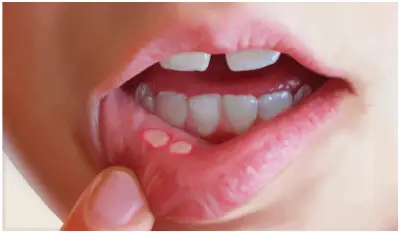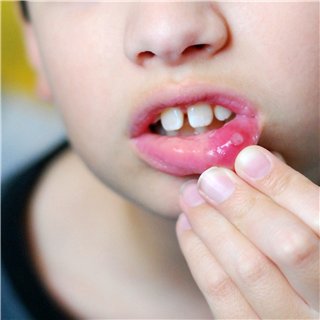Blisters in mouth can be round or oval shaped. They are typically harmless, although they do at times trigger some pain. Most of the times the easy home remedies can enable them to simply disappear, whereas in other cases a doctor might need to assess you.
Blisters in Mouth can be in throat, on tongue, after eating, with fever or after it, on hands, during pregnancy, in child, after dental work, after surgery, on gums, after eating certain foods, after tooth extraction, with swollen glands, after eating hot food, after antibiotics, after oral surgery, after root canal, after vomiting, with rash on body, before period, etc.
Causes of Blisters in the Mouth
Blisters in mouth in many cases are not triggered by infections, so there is no danger of spreading it through kissing, sharing a drink and so on. They are typically caused by a rough tooth brushing, hard food or perhaps biting your check. Other causes are as follows.
Tension
Tension and stress and anxiety are common causes of blisters in mouth. This is a normal response and as the tension and anxiety pass, the blisters will likewise pass.
Food Triggers
There are some foods that are a reason for blisters in the mouth, including:
- Cheese
- Wheat flour
- Coffee
- Almonds
- Peanuts
- Tomatoes
- Strawberries
- Chocolate
Health Conditions
Blisters in mouth can likewise be triggered by some hidden conditions, including:
- Vitamin B-12 Deficiency. This vitamin deficiency triggers blisters in mouth along with fatigue and shortness of breath.
- Iron Deficiency. It triggers the red blood cells to be not able to come with as much oxygen, and this can trigger blisters in mouth along with other side effects.
- Immunodeficiency. This includes any disorders that will attack the immune system or reduce it, and they can cause you to get blisters in the mouth
- Reactive Arthritis. This disease is a reaction to any infection in your body cause blisters in the mouth as well.
- Crohn’s Disease. This is a condition that causes inflammation in both your stomach and digestive tract, and for that reason can lead to stomach and blisters in mouth.
- Celiac Disease. It refers to an intolerance of gluten, and blisters in mouth are one of the side effects
Responses to Certain Medications
Blisters in mouth can be triggered by particular medications you are taking, so it is advised that you alert your doctor of this. It is very important to note if you get the blisters when starting the medication and/or upon increase of dose. Your physician may be able to alter the medication. A few of the medications that might cause blisters in mouth are NSAID’s, such as aspirin or ibuprofen, Beta-blockers, which is utilized to angina, heart failure, unusual heart rhythms, and hypertension.
Less Common Causes
There are some less common reasons for blisters in mouth.
- Chicken pox
- Hand, foot and mouth condition
- Herpes simplex infection
- Sore throat
- Intestinal illness, such as cranky bowel syndrome
- Skin problem, such as lichen planus
- Women’s menstruation
Treatments for Blisters in Mouth
There are some nonprescription alternatives that can assist ease the pain of a mouth blister, however consult the pharmacist if the blister remains in a kid’s mouth, as not all over the counter medications are suitable for children. You can also speak with a physician, as they can recommend something that can assist also.
1. Antimicrobial Mouthwash
The most typically prescribed antimicrobial mouthwash for blisters in mouth is called chlorhexidine gluconate, which is usually recommended for USAge two times a day, and can assist to eliminate bacteria, viruses and fungi. It is very important to note that this mouthwash is not for usage in any one under the age of two.
2. Corticosteroids
Corticosteroids, which work as anti-inflammatory, can help reduce the symptoms and help with the healing process. Hydrocortisone can be recommended and used as soon as the blister begins up to four times a day up until the blister disappears. It is necessary to note that this type of medication may not be appropriate for children under twelve years of ages.
3. Painkillers
Benzydamine is a medication that your doctor can recommend in either a mouthwash kind or a spray. This medication can not be made use of over seven days in a row, and can assist relieve the pain, but can not prevent future incidents. The mouthwash kind might sting initially, or numb the mouth, however these symptoms will terminate.
Preventions for Blisters in Mouth
1. Healthy Lifestyle
Care for your overall body and its health. Consuming a healthy diet, working out regularly and handling anxiety appropriately are very important in keeping up your health. If blisters are somewhat repeating, avoid tough foods, and utilizing a softer tooth brush is suggested.
2. Excellent Dental Hygiene
Great oral health begins with regular dental visits. Your dental expert can help to look for sharp teeth that may be annoying and any other dental problems that might exist. The much better your oral hygiene is the less most likely blisters are to happen.

